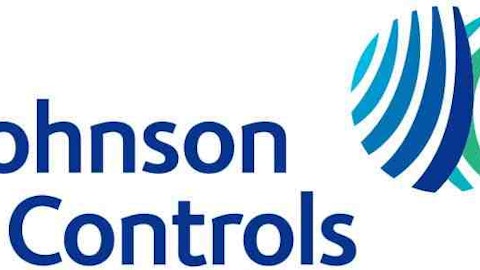To quote Oscar Levant: “There’s a fine line between genius and insanity.”
Elon Musk, CEO of Tesla Motors Inc (NASDAQ:TSLA) has done an exceptional job thus far of traversing both lines simultaneously while also helping to introduce revolutionary new concepts to better the world. A co-founder of PayPal, which has changed the face of Internet payment facilitation, and the developer of the first mass-produced electric vehicle, Musk is often viewed as a hero by the public and investors.

Source: pestoverde, Flickr.
On the flip side, some of Musk’s ideas have bordered on eccentric. The ultimate goal of his aerospace company, SpaceX, to enable people to live on other planets, and his recent idea of a rapid mass-transit system known as the Hyperloop, are both a bit of a stretch. While the thought of a 35-minute trip between Los Angeles and San Francisco sounds intriguing, if you’ve ever watched California try to implement a transportation improvement project like I have you’d know that it’s never finished on time, or even close to budget.
Yet in spite of Elon Musk’s vivid and borderline wild imagination, it’s Tesla Motors Inc (NASDAQ:TSLA)’s shareholders that are really the crazy ones. In an interview with CNBC last month, Musk, when asked about Tesla’s growing valuation (which now stands at $20.6 billion by the way!) had this to say:
I actually think that the value of Tesla Motors Inc (NASDAQ:TSLA) right now is… the market’s being very generous, and they’re obviously giving us a lot of credit for future execution. So, we’ll do our best to honor the faith that the market has placed in us. I really feel like the valuation we’ve gotten is… that we have right now… is more than we have any right to deserve, honestly. I think we need to make sure we really knock the ball out of the park in the coming years.
Musk wants to put people on other planets and tackle California’s congestion issue – both daunting and veritably impossible tasks – but even he recognizes that Tesla Motors Inc (NASDAQ:TSLA)’s valuation makes little sense here.
Giving credit where credit is due
Let me be clear, as a current short-seller of Tesla Motors Inc (NASDAQ:TSLA), I in no way expect the company to fail, nor is the stock going back to single digits. I am a realist and understand that disruptive technologies do change the course of a sector over time. Tesla Motors has done an exceptional job of introducing a mass-produced car that has achieved an overall safety rating that’s higher than any car ever tested. That’s saying something!
In 2011, I projected that Tesla would never turn a profit and that prediction has turned out to be all wet. Tesla has successfully paid off its U.S. Department of Energy loan nine years early and has met its production targets in three straight quarters. Sometimes I do have to give credit where credit is due.
The insanity continues
Then again, some things never change.
For starters, Tesla’s valuation based on its production capabilities has grown even further beyond the Gary Busey stage of ridiculous discussed last month and has traversed into something of Charlie Sheen-like state of existence. For a third straight month I give to you my own personal metric, the price-per-car tabulation, that I think succinctly demonstrates just how overvalued Tesla currently is:
| Company | Market Cap | 2012 Production | Value per Car |
|---|---|---|---|
| General Motors Company (NYSE:GM) | $50.3 billion | 9.288 million | $5,416 |
| Ford Motor Company (NYSE:F) | $68.2 billion | 5.708 million | $11,948 |
| Toyota Motor Corporation (ADR) (NYSE:TM) | $199.1 billion | 9.692 million | $20,543 |
| Honda Motor Co Ltd (ADR) (NYSE:HMC) | $68.1 billion | 3.137 million | $21,709 |
| Tesla | $20.6 billion | 21,000* | $980,952 |
Source: Individual company annual reports, Yahoo! Finance, author’s calculations. * Projected 2013 production.
As I’ve noted previously, the smallest valuation on a production basis is still given to General Motors Company (NYSE:GM) – and with good reason. GM is still attempting to recover from the negative PR associated with its bankruptcy filing in June 2009. In addition, at least domestically, GM has been kicked around by Ford Motor Company (NYSE:F) which redesigned its entire line of trucks and introduced a newer, more fuel-efficient engine known as the EcoBoost which gets better gas mileage but doesn’t sacrifice horsepower. Perhaps General Motors Company (NYSE:GM)’s Sierra and Silverado redesign will reinvigorate its truck sales in 2014, but for now the U.S. truck market remains Ford’s to lose.
Honda Motor Co Ltd (ADR) (NYSE:HMC) and Toyota Motor Corporation (ADR) (NYSE:TM) are both priced a bit higher on a value per car basis, but they, too, have a good reason. Honda Motor, for example, sells motorcycles, lawnmowers, and other equipment which accounts for 27% of its revenue. Factoring in the 73% of Honda’s revenue that it does generate from auto sales brings its valuation considerably closer to that of Ford Motor Company (NYSE:F)’s. Similarly, Toyota commands its premium valuation because, frankly, it’s more profitable than the other carmakers combined based on forward profit projections.
And then there’s Tesla whose valuation is nearing… get this… $1 million per car! Keep in mind that a base Model S runs about $60,000, yet investors are willing to place a current valuation on Tesla of practically $1 million per vehicle!
A disruptor? More like a mosquito…
Is Tesla really disrupting the market? If you looked at August’s U.S. auto sales figures the answer would be a resounding “No!” U.S. auto sales, thanks to preferential lease rates, zoomed higher by their largest rate in six years, with General Motors Company (NYSE:GM) and Ford Motor Company (NYSE:F) seeing unit sales rise by 15% and 12%, respectively, while Honda and Toyota turned in even more impressive U.S. unit sales gains for the month of 27% and 23%.

Source: Steve Jurvetson, Wikimedia Commons.
Tesla’s not having a huge effect on traditional automakers because it’s not a big enough threat yet to be one. Put simply, you can’t waltz into a dealership and simply test drive a Tesla Model S. Since production began on the Model S a year ago, Tesla has delivered approximately 12,750 vehicles. Prior to this, Tesla had sold just a tad more than 2,400 Roadster’s worldwide between 2008 and 2012. Add that up and Tesla, since its founding in 2003, has put just a tad more than 15,000 cars on the road. To put this in some perspective, Toyota sold more than 26,500 cars per day last year! Is the enormity of Tesla’s valuation beginning to sink in yet? Nearly $21 billion in value for a company that hasn’t even matched Toyota’s daily production rate despite being given 10 years to do so?
What’s more is that even Musk understands that Tesla’s greatest risk is in expanding its production. In fact, Musk’s exact words in the interview with CNBC are: “Our big issue is raising production.” Even if Tesla is successful in expanding to 40,000 vehicles next year and 100,000 by 2016, that still translates to more than $206,000 per car; or, in other words, more than three times the price of the Model S and about 14 times the profit expectation of each car assuming a 25% gross margin. The numbers just don’t make any sense.
I still stand firm on my short position of Tesla Motors and, as I have stated in previous months, will look to add to that position.
The article Tesla Investors Are Crazier Than Elon Musk originally appeared on Fool.com and is written by Sean Williams.
Fool contributor Sean Williams is short shares of Tesla Motors, but has no material interest in any other companies mentioned in this article. You can follow him on CAPS under the screen name TMFUltraLong, track every pick he makes under the screen name TrackUltraLong, and check him out on Twitter, where he goes by the handle @TMFUltraLong.The Motley Fool owns shares of, and recommends, Ford and Tesla Motors. It also recommends General Motors.
Copyright © 1995 – 2013 The Motley Fool, LLC. All rights reserved. The Motley Fool has a disclosure policy.




